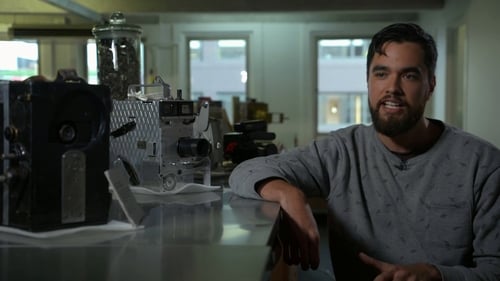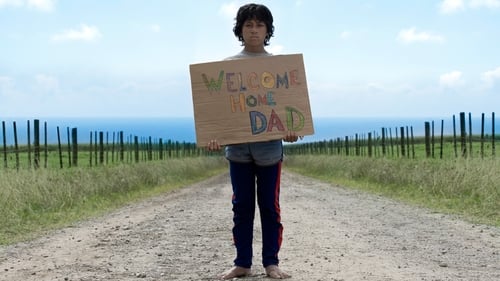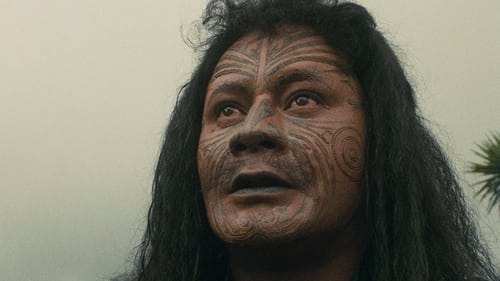Merata Mita
Рождение : 1942-06-19, Maketu, New Zealand
Смерть : 2010-05-31
История
Merata Mita, CNZM was a New Zealand actress and filmmaker, as well as a key figure in the growth of the Māori screen industry. Mita was from the Māori tribes of Ngāti Pikiao and Ngāi Te Rangi.

Self (archive footage)
A documentary portrait of the pioneering indigenous filmmaker and activist Merata Mita and an intimate tribute from a son about his mother that delves into the life of the first woman from an Indigenous Nation to solely direct a film anywhere in the world. Known as the grandmother of Indigenous cinema, Merata’s independent political documentaries of the 1970s and 80s highlighted injustices for Māori people and often divided the country. Mita was fearless in her life, her activism and her art. Chronicling the director’s journey to decolonize the film and television screens of New Zealand and the world, the film documents her work, her early struggles with her family and her drive for social justice that often proved personally dangerous.

Producer
Saving Grace - Te Whakarauora Tangata is the final work of director Merata Mita, who passed away suddenly before the film could be completed. The film addresses some of the deepest and most distressing issues Māori communities face, and shows how extraordinary creative solutions are being provided by Māori communities themselves. Mita asks Maori men to front up to some grim realities by talking openly and honestly about the violence and abuse that has plagued their communities for many years. The film is a personal response to this violence, with Mita making a case for a return to an older model of Maori manhood, when men were the ones who sweetly sang the children to sleep. “Merata intended the documentary to count in ways that mattered deeply to her and to change perceptions of abuse and violence by using themes of responsibility, redemption, revitalisation, forgiveness and, most of all, love.” - Carol Hirschfeld, Māori Television.

Director
Saving Grace - Te Whakarauora Tangata is the final work of director Merata Mita, who passed away suddenly before the film could be completed. The film addresses some of the deepest and most distressing issues Māori communities face, and shows how extraordinary creative solutions are being provided by Māori communities themselves. Mita asks Maori men to front up to some grim realities by talking openly and honestly about the violence and abuse that has plagued their communities for many years. The film is a personal response to this violence, with Mita making a case for a return to an older model of Maori manhood, when men were the ones who sweetly sang the children to sleep. “Merata intended the documentary to count in ways that mattered deeply to her and to change perceptions of abuse and violence by using themes of responsibility, redemption, revitalisation, forgiveness and, most of all, love.” - Carol Hirschfeld, Māori Television.

Executive Producer
A documentary that takes a retrospective look at the influence of Mau Piailug, a native from the tiny Micronesian atoll of Satawal, in reviving the art of non-instrument navigation in Polynesia. Relying solely on his knowledge of celestial bodies, oceanic currents, and natural markers, Mau guided the traditional sailing canoe Hokulea on a 1976 voyaging to Tahiti, a journey not completed in more than 600 years. For Native Hawaiians, this expedition signaled an exodus from the cultural doldrums of the previous century. Sail along on this remarkable journey and share Mau's story of reinvigoration, reconciliation, and redemption of a people as the master wayfinder and teacher that breathed life back into the sails Polynesia's voyaging tradition.

Co-Producer
1984 год. Майкл Джексон — король даже в забытом богом местечке Уаихао Бэй, что в Новой Зеландии. 11-летний Аламейн, которого все зовут просто Мальчик, живет на ферме с бабушкой, козлом и младшим братом Рокки, считающем, что обладает магической силой. В один прекрасный день объявляется отец Мальчика, о котором парень всем вокруг рассказывал героические небылицы. Но на деле папаша оказывается придурковатым неудачником, вернувшимся только за тем, чтобы найти закопанный несколько лет назад мешок с деньгами…

Second Unit Director
Журналист расследует загадочную смерть новозеландца, который наткнулся на международные банковские записи после покупки подержанного компьютера

Producer
Журналист расследует загадочную смерть новозеландца, который наткнулся на международные банковские записи после покупки подержанного компьютера

Executive Producer
Coming of age story about Viki a young pacific islander attempting to escape the stifling conformity of island culture. Inspired by the myth of the Warrior Woman, Viki recovers from the death of her father and fights for justice and freedom for her community.

Writer
Ralph Hotere (Te Aupōuri) is regarded as one of New Zealand's greatest artists. This documentary by Merata Mita provides a perspective on his world, largely by way of framing his extensive body of work. Hotere remains famously tight-lipped throughout, but there are interviews with artists, friends and commentators, alongside scenes of Hotere working and of his contemporary home context. Mita's impressionistic film is set to a Hirini Melbourne-directed score of jazz, māori and pop songs, and poetry reading by Hotere's first wife Cilla McQueen.

Producer
Ralph Hotere (Te Aupōuri) is regarded as one of New Zealand's greatest artists. This documentary by Merata Mita provides a perspective on his world, largely by way of framing his extensive body of work. Hotere remains famously tight-lipped throughout, but there are interviews with artists, friends and commentators, alongside scenes of Hotere working and of his contemporary home context. Mita's impressionistic film is set to a Hirini Melbourne-directed score of jazz, māori and pop songs, and poetry reading by Hotere's first wife Cilla McQueen.

Director
Ralph Hotere (Te Aupōuri) is regarded as one of New Zealand's greatest artists. This documentary by Merata Mita provides a perspective on his world, largely by way of framing his extensive body of work. Hotere remains famously tight-lipped throughout, but there are interviews with artists, friends and commentators, alongside scenes of Hotere working and of his contemporary home context. Mita's impressionistic film is set to a Hirini Melbourne-directed score of jazz, māori and pop songs, and poetry reading by Hotere's first wife Cilla McQueen.

Writer
Fifty years in the making, this extraordinary reconstruction of a never-completed 1940 documentary captures the construction of seven massive traditional war canoes by Maori tribespeople in anticipation of New Zealand's centenary celebrations.

Director
Fifty years in the making, this extraordinary reconstruction of a never-completed 1940 documentary captures the construction of seven massive traditional war canoes by Maori tribespeople in anticipation of New Zealand's centenary celebrations.

Producer
Rewi Rapana returns to the small country town of Te Mata after his family has left the district. His arrival rekindles old tensions as well as renewing family ties. He is seeking an identity and a permanent place to call home yet desperately hiding a secret from his past. Oddly enough there is one person with whom he finds peace of mind. She is an old woman known as Kara. A special relationship develops between Rewi, Kara and Kara’s great granddaughter Awatea.

Screenplay
Rewi Rapana returns to the small country town of Te Mata after his family has left the district. His arrival rekindles old tensions as well as renewing family ties. He is seeking an identity and a permanent place to call home yet desperately hiding a secret from his past. Oddly enough there is one person with whom he finds peace of mind. She is an old woman known as Kara. A special relationship develops between Rewi, Kara and Kara’s great granddaughter Awatea.

Director
Rewi Rapana returns to the small country town of Te Mata after his family has left the district. His arrival rekindles old tensions as well as renewing family ties. He is seeking an identity and a permanent place to call home yet desperately hiding a secret from his past. Oddly enough there is one person with whom he finds peace of mind. She is an old woman known as Kara. A special relationship develops between Rewi, Kara and Kara’s great granddaughter Awatea.

Self
Making of documentary on the set of New Zealand's first epic Utu (1983), working with little money and dealing respectfully with matters of cultural protocol. Merata Mita discusses complex issues of inter-cultural conflict.

Narrator
Covers the 12-week-long strike at Kinleith Pulp and Paper Mill, owned by New Zealand Forest Products in January 1980.

Matu
In New Zealand in the 1860s the native Maori people fought the British colonials to keep the land guaranteed to them by treaty. The warrior Te Wheke fights for the British until betrayal leads him to seek utu (revenge). The settler Williamson in turn seeks revenge after Te Wheke attacks his homestead. Meanwhile Wiremu, an officer for the British, seems to think that resistance is futile.

Producer
In 1981, the New Zealand government invited the South African rugby team to tour New Zealand. This effectively split the country in half. Patu! is the story of the protest movement, HART (halt all racist tours). This documentary shows footage of protester meetings, rugby games and various beatings meted out to protesters from police.

Director
In 1981, the New Zealand government invited the South African rugby team to tour New Zealand. This effectively split the country in half. Patu! is the story of the protest movement, HART (halt all racist tours). This documentary shows footage of protester meetings, rugby games and various beatings meted out to protesters from police.

Director
Merata Mita, Leon Narbey and Gerd Pohlmann’s powerful documentary Bastion Point: Day 507 depicts the eviction of protestors from Bastion Point during the struggle for Māori land rights.

Producer
Merata Mita, Leon Narbey and Gerd Pohlmann’s powerful documentary Bastion Point: Day 507 depicts the eviction of protestors from Bastion Point during the struggle for Māori land rights.

Screenplay
Keskidee, a small Jamaican bird resilient in the face of hardship, is also the name of a self-help black arts centre in London, and the theatre group who work there. Keskidee's actors and musicians were brought to New Zealand to work with communities who face similar day-to-day dilemmas and who might be encouraged to express their frustrations and anger in drama, poetry and music. Keskidee were to act as a catalyst. the film shows some of their work and their response to the people they met. Tribal elders try to show keskidee the depth of Maori roots in the land, and the complexity and pain of their present struggles: against the loss of Aroha; against the laws of pen and paper; the alienation of their land; the suppression of their language; the devaluation of their people and culture.

Producer
Keskidee, a small Jamaican bird resilient in the face of hardship, is also the name of a self-help black arts centre in London, and the theatre group who work there. Keskidee's actors and musicians were brought to New Zealand to work with communities who face similar day-to-day dilemmas and who might be encouraged to express their frustrations and anger in drama, poetry and music. Keskidee were to act as a catalyst. the film shows some of their work and their response to the people they met. Tribal elders try to show keskidee the depth of Maori roots in the land, and the complexity and pain of their present struggles: against the loss of Aroha; against the laws of pen and paper; the alienation of their land; the suppression of their language; the devaluation of their people and culture.

Director
Keskidee, a small Jamaican bird resilient in the face of hardship, is also the name of a self-help black arts centre in London, and the theatre group who work there. Keskidee's actors and musicians were brought to New Zealand to work with communities who face similar day-to-day dilemmas and who might be encouraged to express their frustrations and anger in drama, poetry and music. Keskidee were to act as a catalyst. the film shows some of their work and their response to the people they met. Tribal elders try to show keskidee the depth of Maori roots in the land, and the complexity and pain of their present struggles: against the loss of Aroha; against the laws of pen and paper; the alienation of their land; the suppression of their language; the devaluation of their people and culture.









